
Mariupol: The Coastal Jewel of Ukraine
Mariupol, located on the northern coast of the Sea of Azov, is a vibrant city in Ukraine known for its rich history, cultural diversity, and stunning coastal views. The city has a unique blend of industrial vitality and natural beauty, making it an intriguing destination for tourists seeking both adventure and relaxation. One of Mariupol's key attractions is its beautiful beaches, where visitors can enjoy the sun, sand, and sea. The city’s waterfront is lined with charming promenades, parks, and cafes, providing a perfect setting for leisurely strolls and picturesque views. The Sea of Azov’s warm and shallow waters are ideal for swimming and water sports, making it a favorite spot for families and adventure seekers alike. Mariupol also boasts a rich cultural scene with numerous museums, theaters, and art galleries. The Local History Museum offers a deep dive into the city's past, while the Kuindzhi Art Gallery showcases works by the famous painter Arkhip Kuindzhi, who was born in the region. The city’s diverse architecture, from grand Soviet-era buildings to modern structures, tells the story of its dynamic history and development. Food lovers will find Mariupol’s culinary offerings delightful, with a variety of local and international cuisines available. The city is particularly known for its fresh seafood, thanks to its coastal location. Markets and restaurants serve up delicious dishes that highlight the flavors of the region. Despite its industrial roots, Mariupol has numerous green spaces and parks. Gurov Park, with its well-maintained pathways and serene lake, is a popular spot for both locals and tourists. Additionally, the city hosts several festivals and cultural events throughout the year, making it a lively and engaging place to visit.
Local tips in Mariupol
- Visit the Local History Museum to understand Mariupol's past and cultural evolution.
- Spend a day at the beaches of the Sea of Azov for relaxation and water sports.
- Explore Gurov Park for a peaceful retreat amidst nature.
- Try the local seafood dishes at the city's markets and restaurants.
- Attend one of the city's many festivals for a taste of local culture and traditions.
Mariupol: The Coastal Jewel of Ukraine
Mariupol, located on the northern coast of the Sea of Azov, is a vibrant city in Ukraine known for its rich history, cultural diversity, and stunning coastal views. The city has a unique blend of industrial vitality and natural beauty, making it an intriguing destination for tourists seeking both adventure and relaxation. One of Mariupol's key attractions is its beautiful beaches, where visitors can enjoy the sun, sand, and sea. The city’s waterfront is lined with charming promenades, parks, and cafes, providing a perfect setting for leisurely strolls and picturesque views. The Sea of Azov’s warm and shallow waters are ideal for swimming and water sports, making it a favorite spot for families and adventure seekers alike. Mariupol also boasts a rich cultural scene with numerous museums, theaters, and art galleries. The Local History Museum offers a deep dive into the city's past, while the Kuindzhi Art Gallery showcases works by the famous painter Arkhip Kuindzhi, who was born in the region. The city’s diverse architecture, from grand Soviet-era buildings to modern structures, tells the story of its dynamic history and development. Food lovers will find Mariupol’s culinary offerings delightful, with a variety of local and international cuisines available. The city is particularly known for its fresh seafood, thanks to its coastal location. Markets and restaurants serve up delicious dishes that highlight the flavors of the region. Despite its industrial roots, Mariupol has numerous green spaces and parks. Gurov Park, with its well-maintained pathways and serene lake, is a popular spot for both locals and tourists. Additionally, the city hosts several festivals and cultural events throughout the year, making it a lively and engaging place to visit.
When is the best time to go to Mariupol?
Iconic landmarks you can’t miss
park Veselka
Explore Park Veselka, Mariupol's lush urban oasis, where nature meets community, perfect for relaxation, recreation, and family fun.
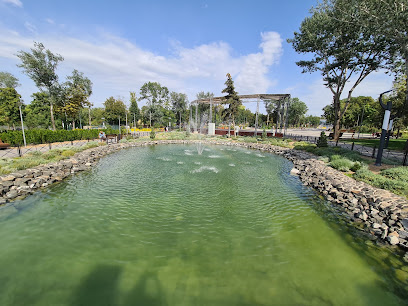
City Garden
Discover the beauty of City Garden, an urban park in Mariupol, where lush greenery meets vibrant community life, perfect for relaxation and exploration.
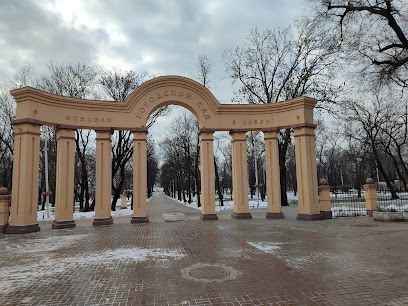
Tes Tur
Explore Mariupol with Tes Tur, your trusted travel agency for immersive experiences in Donetsk Oblast and beyond.
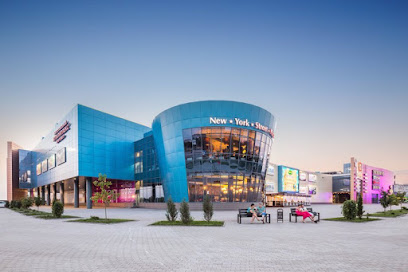
Staraya vodonapornaya tower
Discover the Staraya Vodonapornaya Tower, a stunning historical landmark in Mariupol, showcasing architectural beauty and rich cultural heritage.
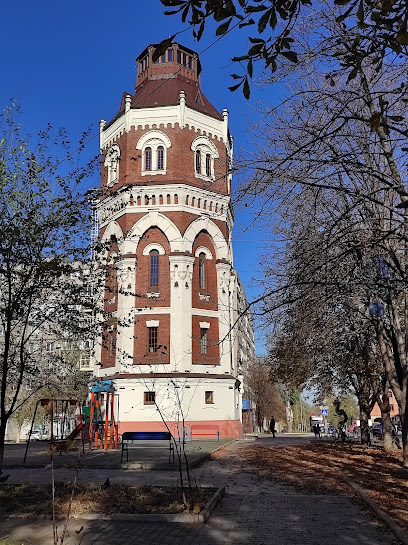
7 Goats
Discover the culinary treasures of Mariupol at 7 Goats, where local flavors meet international cuisine in a warm and inviting setting.
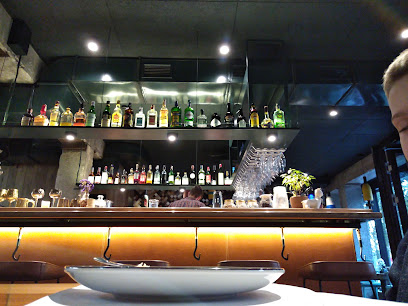
Port of Mariupol
Experience the vibrant atmosphere and rich maritime heritage of the Port of Mariupol on the stunning Sea of Azov.
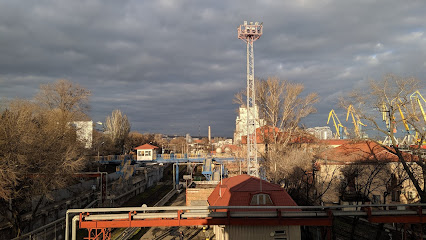
Pishchanka Beach
Discover the serene beauty of Pishchanka Beach in Mariupol, a perfect coastal retreat for relaxation and adventure amidst nature's splendor.
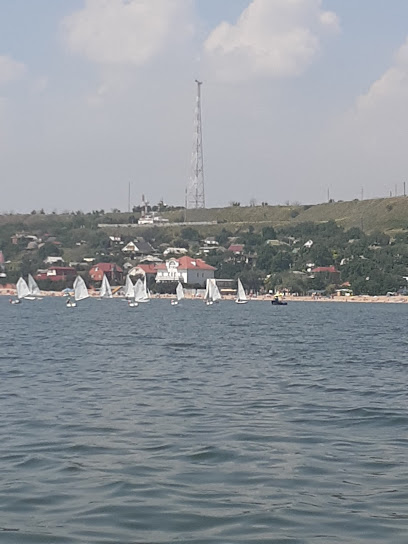
Dim Hampera
Explore the vibrant blend of history and local culture at Dim Hampera, Mariupol's enchanting tourist attraction.
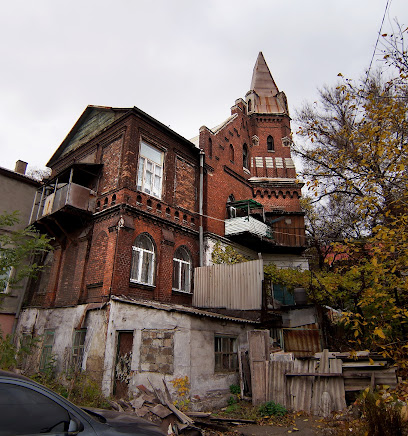
Church of the Intercession of the Mother of God
Discover the serene beauty and architectural splendor of the Church of the Intercession of the Mother of God in Mariupol, a must-visit spiritual landmark.
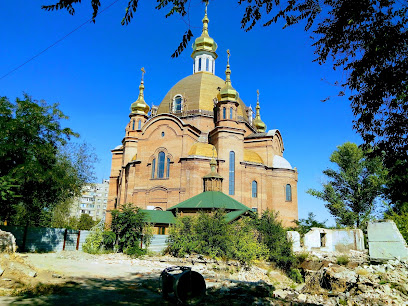
Pushkin Monument
Explore the Pushkin Monument in Mariupol, a charming historical landmark celebrating the legacy of Russia's greatest poet, Alexander Pushkin.
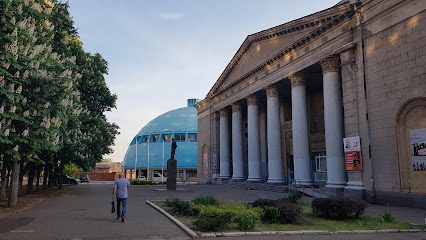
Mytropolyt Ihnatiy
Discover the spiritual essence and architectural beauty of Mytropolyt Ihnatiy, a must-visit religious destination in Mariupol, Donetsk Oblast.
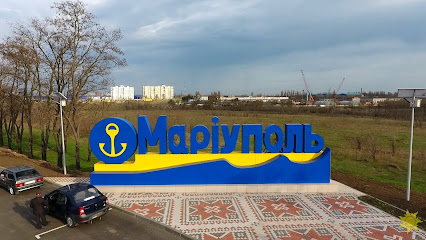
Будинок з годинником (Дом с часами) Слава Україні
Discover the architectural beauty and historical significance of Budynok z Hodynnykom, a cultural gem in Mariupol, Ukraine.
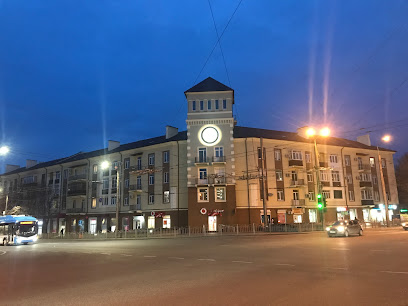
ゴジーク・マリウポリ
Discover the captivating Gorky Marine Plaza in Mariupol, a historical landmark blending stunning views and rich cultural heritage.
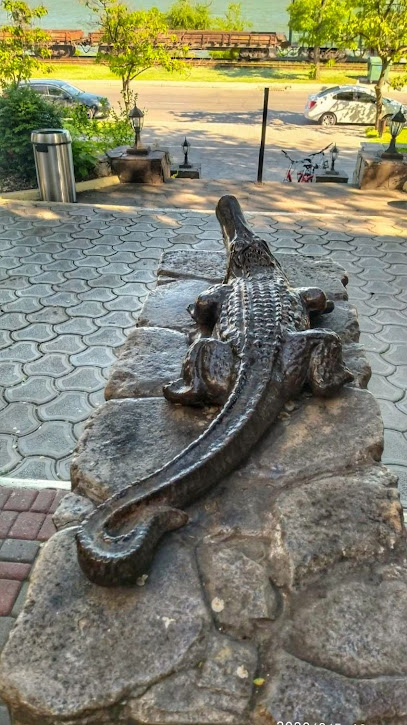
NEW MARIUPOL
Explore New Mariupol: A symbol of hope and resilience in Ukraine, where culture, history, and community thrive amidst challenges.

Unmissable attractions to see
park Veselka
Explore the beauty of Park Veselka in Mariupol, a serene park perfect for relaxation, strolls, and family fun amidst nature's splendor.
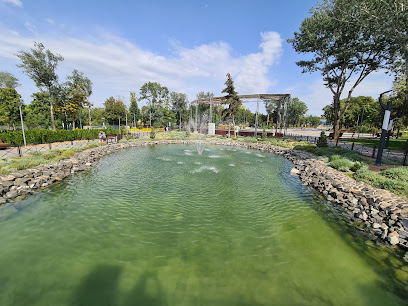
City Garden
Experience tranquility and stunning sea views at City Garden, a lush park in the heart of Mariupol, perfect for relaxation and exploration.
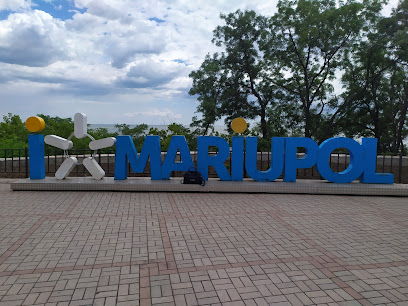
Ekstrim Park
Experience the thrill of adventure at Ekstrim Park, Mariupol's premier amusement park offering fun rides, delicious food, and unforgettable memories.
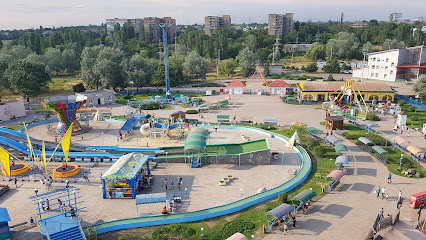
Pishchanka Beach
Discover the serene beauty of Pishchanka Beach in Mariupol, where golden sands meet the azure waters of the Black Sea, perfect for relaxation and adventure.
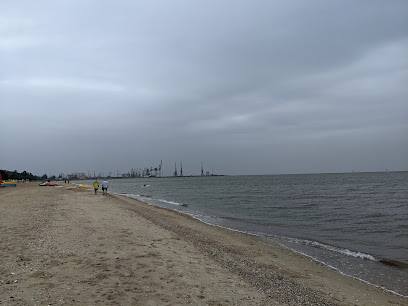
Church of the Intercession of the Mother of God
Explore the architectural beauty and spiritual tranquility of the Church of the Intercession of the Mother of God in Mariupol, a cultural gem in Ukraine.
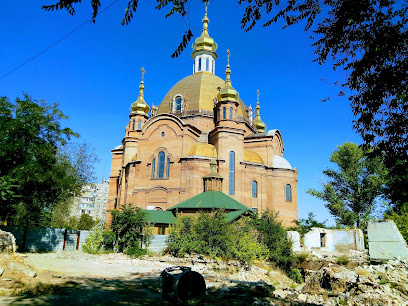
Muzey Narodnoho Pobutu
Explore the cultural tapestry of Mariupol at Muzey Narodnoho Pobutu, where history and heritage come alive through engaging exhibits.
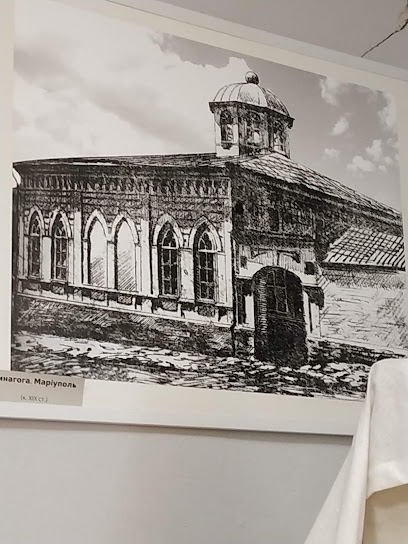
Essential places to dine
Divan
Discover Divan in Mariupol: A delightful blend of local flavors and international cuisine awaits at this vibrant restaurant.
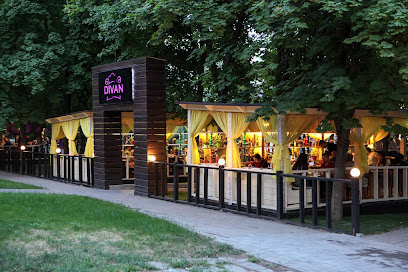
Chumakov
Discover Chumakov Brewpub in Mariupol: where craft beer meets delicious Ukrainian cuisine in a warm and welcoming atmosphere.
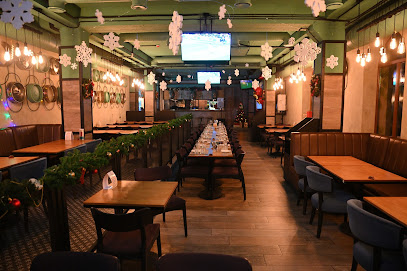
Kulʹt Mariupol
Experience authentic Ukrainian cuisine and vibrant local beers at Kulʹt Mariupol - a must-visit culinary hotspot for every traveler.
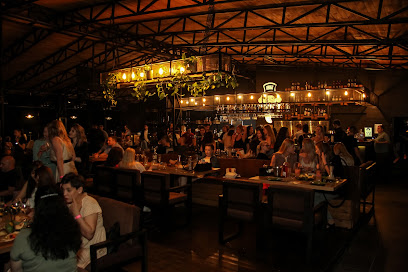
STONE
Discover the culinary excellence at Stone in Mariupol—where local flavors meet modern dining experiences.
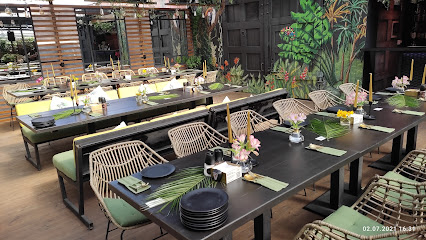
Kafe Sad
Discover the flavors of Ukraine at Kafe Sad in Mariupol, where every meal is a celebration of taste and culture.
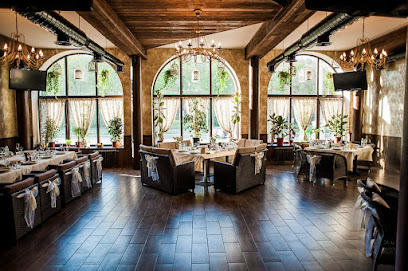
Vintage
Experience the vibrant ambiance of Vintage Brewpub in Mariupol – where craft beer meets delicious cuisine and endless entertainment options.
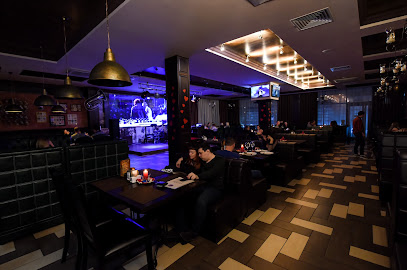
Gusi Prodzhekt
Discover Gusi Prodzhekt in Mariupol: where delicious cuisine meets vibrant live music in a welcoming atmosphere.
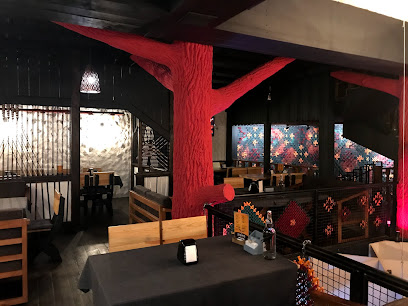
7 Goats
Experience exquisite dining at 7 Goats in Mariupol – where local flavors meet culinary artistry for an unforgettable meal.
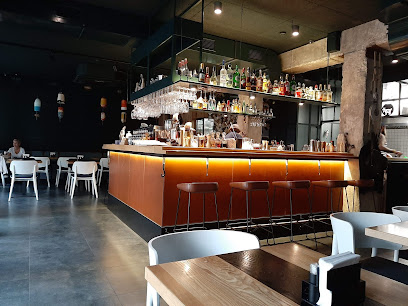
V Rebro
Experience authentic Ukrainian cuisine at V Rebro in Mariupol, where tradition meets modern dining in a warm and inviting atmosphere.
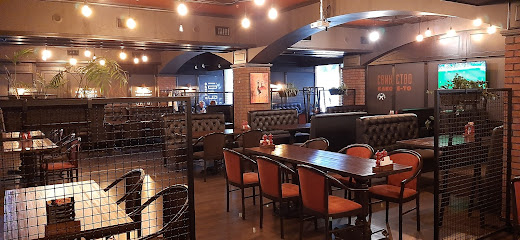
Celentano
Experience authentic Italian pizza at Celentano in Mariupol – where every slice tells a story of flavor and tradition.
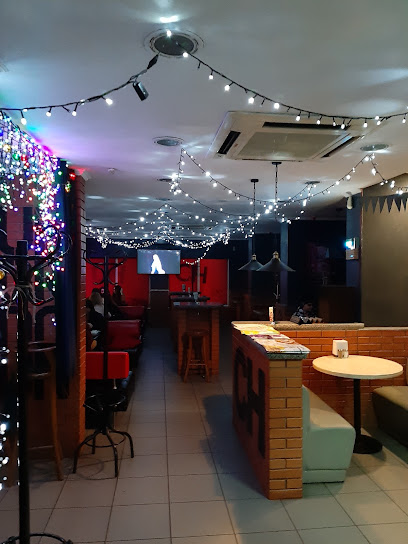
Піца Royal
Experience authentic Italian flavors at Піца Royal in Mariupol - A must-visit pizza haven for every food lover.
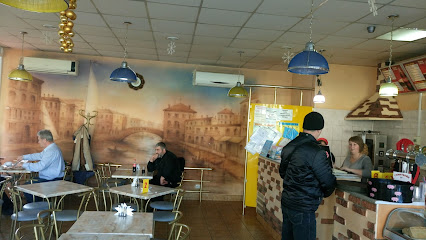
Crazy Maam
Discover the perfect blend of dining and entertainment at Crazy Maam in Mariupol – where delicious food meets karaoke fun!
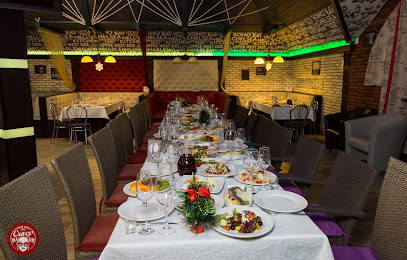
Detroit. City diner
Discover the flavors of America at Detroit City Diner in Mariupol, where comfort food meets warmth and hospitality.
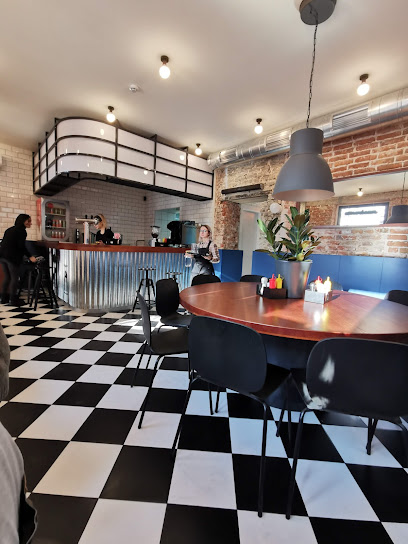
Restaurant NOBLE
Savor exquisite dishes in an elegant setting at Restaurant NOBLE in Mariupol—where local flavors meet international cuisine.
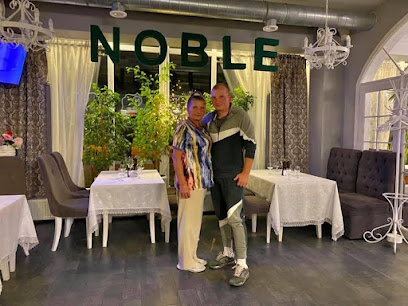
Kolyba
Experience authentic Ukrainian cuisine at Kolyba in Mariupol - where tradition meets flavor in a cozy setting.
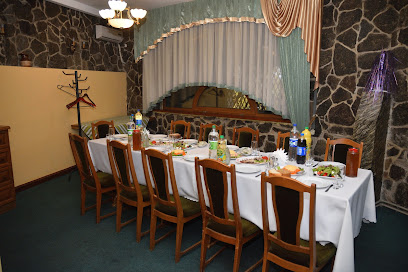
Markets, malls and hidden boutiques
Zerkalʹnyy
Discover Zerkal'nyy in Mariupol: a vibrant supermarket and cafeteria offering local flavors and essentials for every traveler.
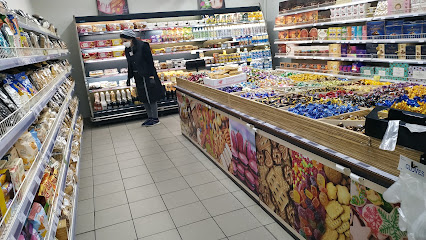
Akvastudiya,, Banka,, Zoomahazyn
Explore Akvastudiya in Mariupol for a unique pet shopping experience, filled with love, care, and a variety of adorable animals and supplies.
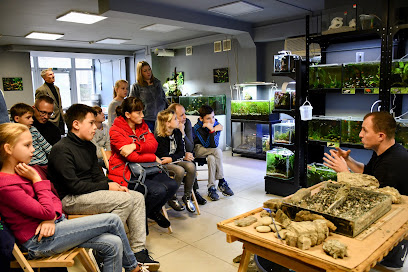
Groooot Shop
Explore Groooot Shop in Mariupol for unique gifts and local crafts, a treasure trove of culture and creativity awaits every tourist.
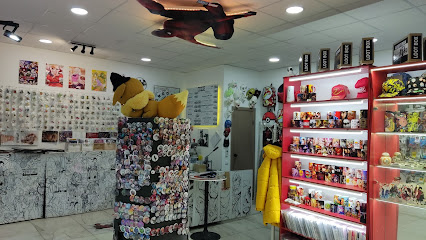
Oodji ТРЦ Украина
Explore trendy fashion at Oodji ТРЦ Украина, a premier clothing store in Mariupol offering stylish apparel for every occasion.
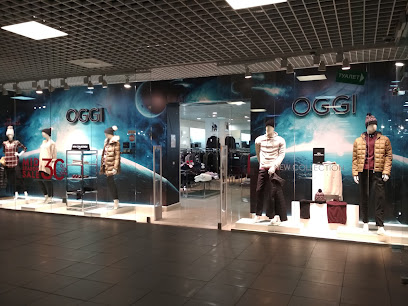
Kolambyya
Discover Kolambyya, Mariupol's premier shopping destination, where diverse retail options meet delightful dining experiences in a vibrant atmosphere.
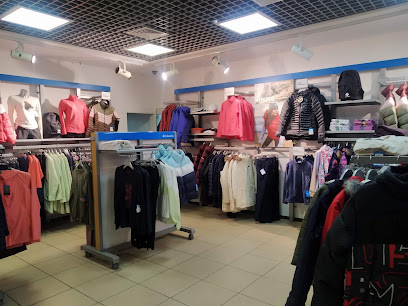
Лучшие чаи мира Свит чаю
Experience the allure of the world's finest teas at Sweet Tea, Mariupol's premier destination for tea lovers.
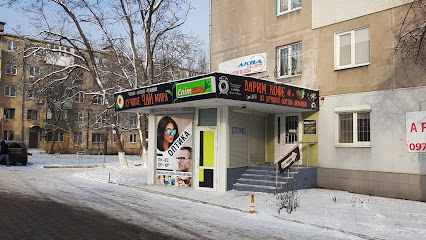
Antonio Biaggi
Discover a fashionable range of shoes at Antonio Biaggi, Mariupol's premier destination for stylish footwear that meets every taste.
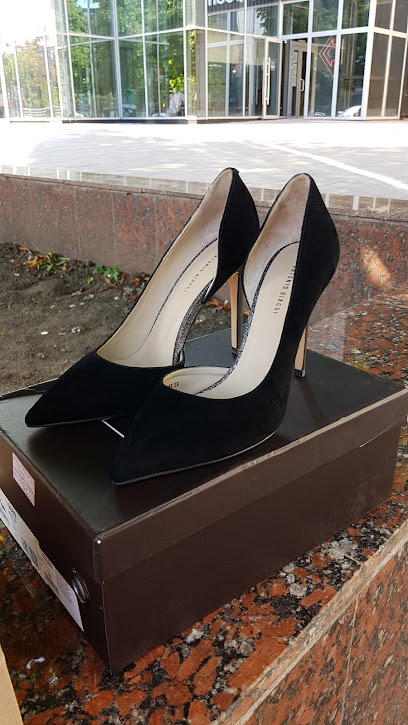
Табакерка
Discover the rich culture of tobacco at Табакерка, a premier tobacco shop in Mariupol offering premium cigars and smoking accessories.
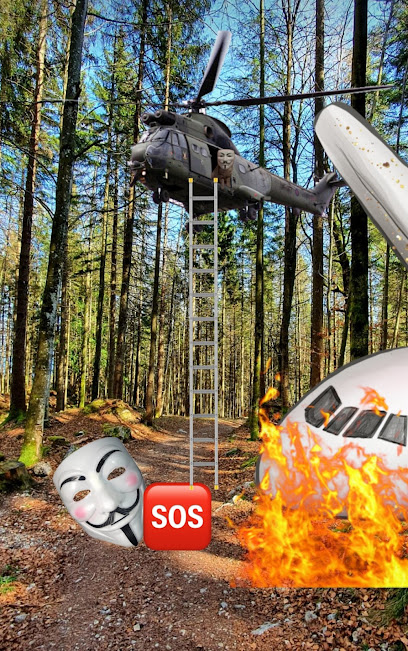
Galia Baluvana
Discover the flavors of Mariupol at Galia Baluvana, where local produce meets culinary tradition in a delightful grocery shopping experience.
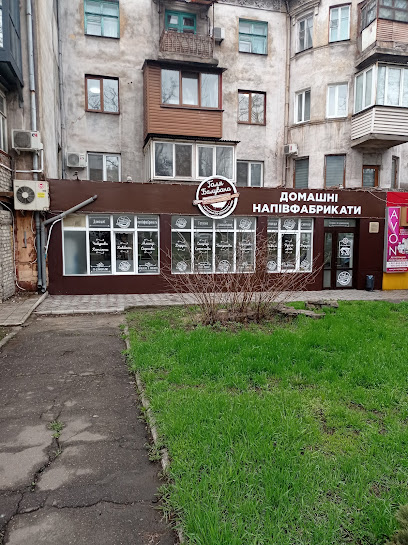
JOYMISS
Explore JOYMISS in Mariupol for the latest women's fashion trends and a delightful shopping experience.
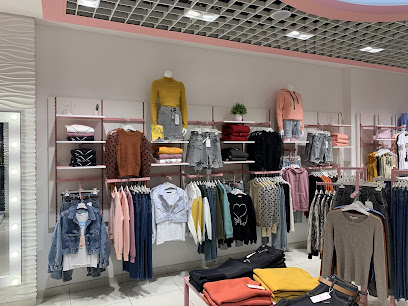
Еко - Лавка
Discover a haven of health at Еко - Лавка, your go-to health food store in Mariupol, offering organic delights and wellness products for every traveler.
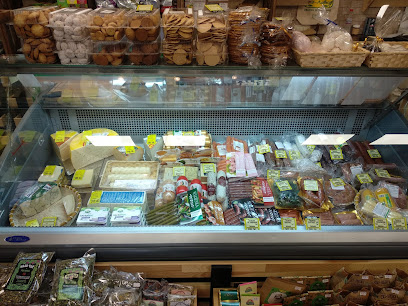
Prima Moda
Explore Prima Moda in Mariupol for an exquisite selection of women's clothing, stylish handbags, and formal wear to elevate your wardrobe.
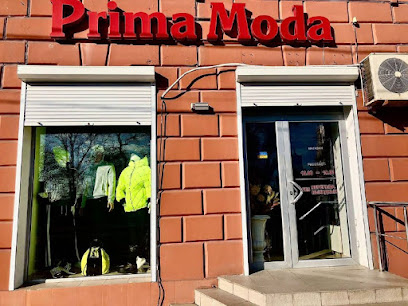
Царство керамики
Explore Царство керамики in Mariupol for unique gifts and exquisite ceramics that reflect local artistry and culture.
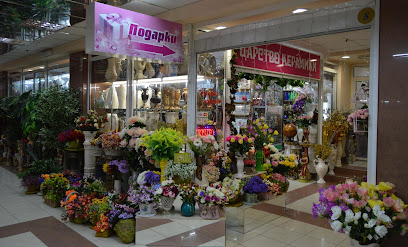
Svit Shkiry
Explore Svit Shkiry in Mariupol for the latest in men’s and women’s fashion, blending local charm with modern style.
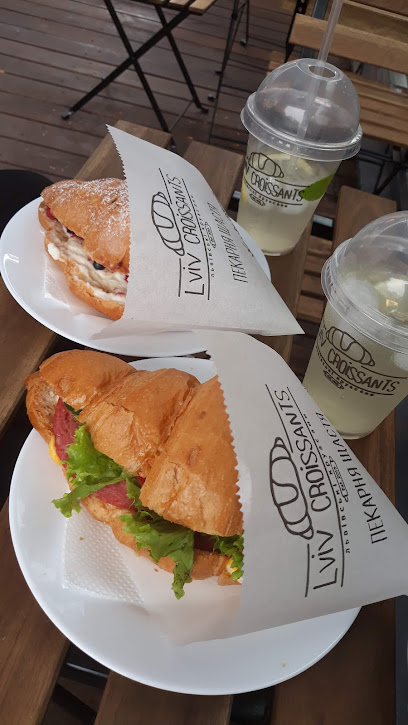
Bargello
Discover the art of fragrance at Bargello, Mariupol's premier perfume store, offering a unique selection of scents in a charming atmosphere.
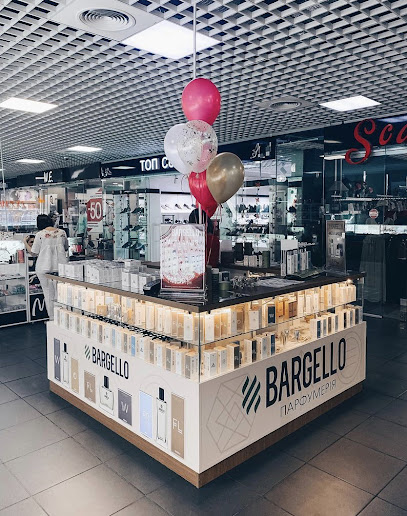
Essential bars & hidden hideouts
Chumakov
Experience the best of local brewing at Chumakov in Mariupol, where craft beer meets delicious food in a cozy and inviting atmosphere.
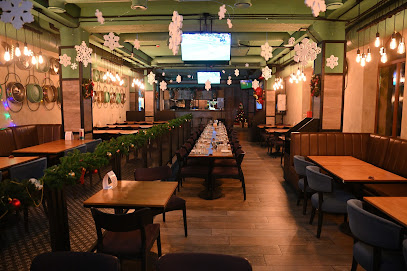
Vintage
Experience the vibrant atmosphere of Vintage, a lively brewpub in Mariupol offering craft beers, delicious steak, bowling, and karaoke for a memorable night out.
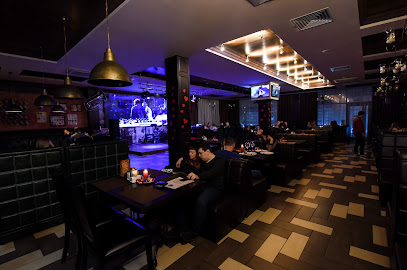
Crazy Maam
Discover Crazy Maam, Mariupol's premier restaurant and karaoke bar, where delightful cuisine meets lively entertainment in a vibrant atmosphere.
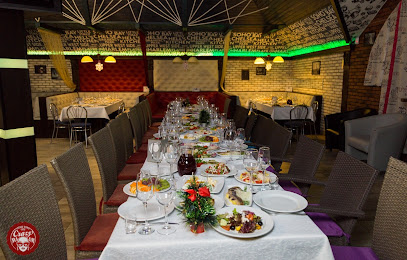
Бар Jager Point
Discover the lively spirit of Mariupol at Bar Jager Point, where great drinks and friendly vibes come together for an unforgettable night out.
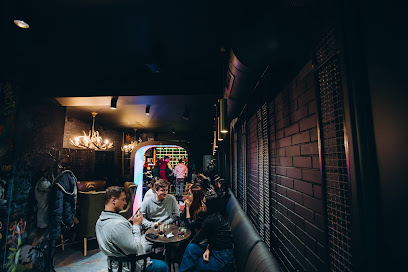
The DogZ Bar
Experience the vibrant culinary scene at The DogZ Bar, a premier gastropub in Mariupol that delights with innovative dishes and a lively atmosphere.
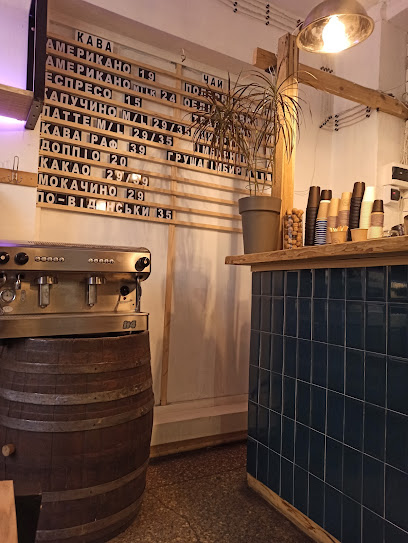
Ёрш
Discover the vibrant atmosphere and diverse drink selection at Ёрш, a must-visit bar in Mariupol for an unforgettable night out.
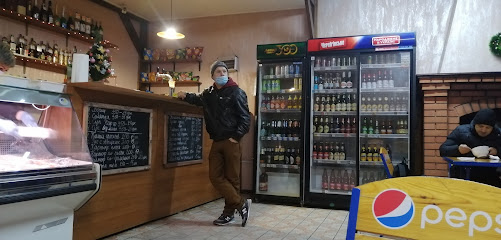
Илья
Discover the vibrant nightlife at Илья Bar in Mariupol, where local flavors and a lively ambiance come together for an unforgettable experience.
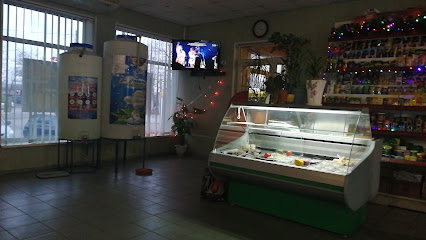
Светлана
Svetlana Bar in Mariupol offers a vibrant nightlife experience with delicious drinks and a welcoming atmosphere, perfect for tourists seeking local charm.
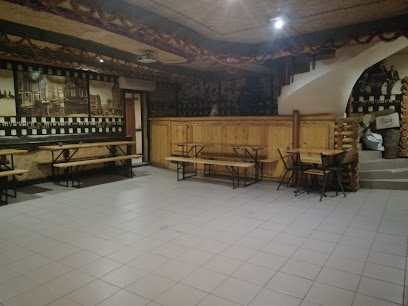
Vape Bar & Shop
Discover the best vaping experience in Mariupol at the Vape Bar & Shop, where relaxation meets social connection in a vibrant atmosphere.

Весёлый роджер
Discover the vibrant nightlife of Mariupol at Весёлый роджер, a lively bar perfect for refreshing drinks and meeting locals.
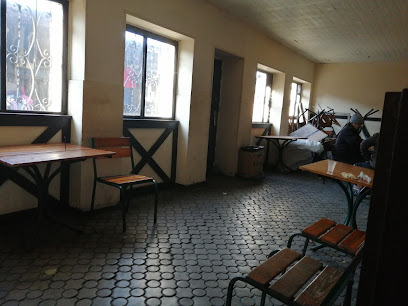
Диана
Dive into the lively atmosphere of Диана Bar, a must-visit gem in Mariupol for refreshing drinks and unforgettable moments.
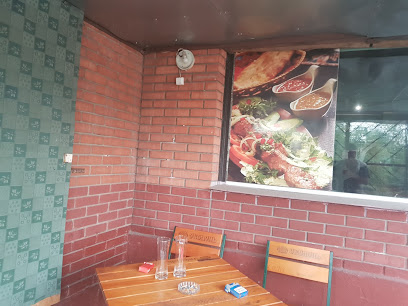
Handelyk
Experience local flavors and hospitality at Handelyk, a charming bar in Mariupol's Livoberezhnyi District.
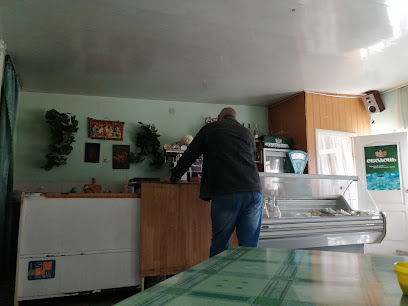
Bar U Haly
Experience the vibrant atmosphere and exceptional drinks at Bar U Haly, a top destination for nightlife in Mariupol, Ukraine.
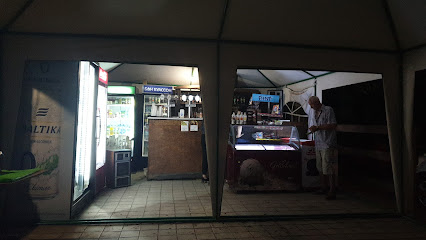
Пивная Черниговское
Experience the vibrant atmosphere of Пивная Черниговское, a top bar in Mariupol offering a wide selection of beers and local culture.
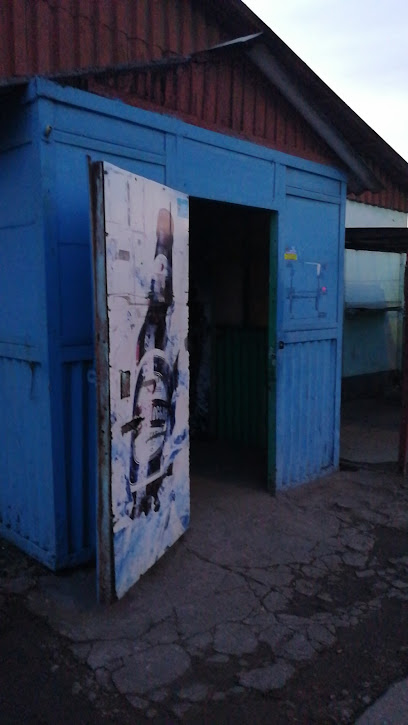
Local Phrases
-
- HelloПривіт
[Privit] - GoodbyeДо побачення
[Do pobachennya] - YesТак
[Tak] - NoНі
[Ni] - Please/You're welcomeБудь ласка
[Bud laska] - Thank youДякую
[Dyakuyu] - Excuse me/SorryВибачте
[Vybachte] - How are you?Як справи?
[Yak spravy?] - Fine. And you?Добре. А ви?
[Dobre. A vy?] - Do you speak English?Ви говорите англійською?
[Vy hovoryte anhliysʹkoyu?] - I don't understandЯ не розумію
[Ya ne rozumiyu]
- HelloПривіт
-
- I'd like to see the menu, pleaseЯ б хотів подивитися меню, будь ласка
[Ya b khotiv podyvytysya meny, bud laska] - I don't eat meatЯ не їм м'ясо
[Ya ne yim m'yaso] - Cheers!Будьмо!
[Budʹmo!] - I would like to pay, pleaseЯ б хотів розрахуватися, будь ласка
[Ya b khotiv rozrakhuvatysya, bud laska]
- I'd like to see the menu, pleaseЯ б хотів подивитися меню, будь ласка
-
- Help!Допоможіть!
[Dopomozhitʹ!] - Go away!Піди геть!
[Pidi hetʹ!] - Call the Police!Викличте поліцію!
[Vyklychte politsiyu!] - Call a doctor!Викличте лікаря!
[Vyklychte likarya!] - I'm lostЯ загубився
[Ya zahubyvsya] - I'm illЯ хворий
[Ya khvoryy]
- Help!Допоможіть!
-
- I'd like to buy...Я б хотів купити...
[Ya b khotiv kupity...] - I'm just lookingЯ просто дивлюсь
[Ya prosto dyvlus] - How much is it?Скільки це коштує?
[Skilʹky tse koshtuye?] - That's too expensiveЦе занадто дорого
[Tse zanadto doroho] - Can you lower the price?Чи можна знизити ціну?
[Chy mozhna znyzyty tsinu?]
- I'd like to buy...Я б хотів купити...
-
- What time is it?Котра година?
[Kotra hodyna?] - It's one o'clockОдинадцята
[Odynadtsyata] - Half past (10)Пів на одинадцяту
[Piv na odynadtsyatu] - MorningРанок
[Ranok] - AfternoonДень
[Denʹ] - EveningВечір
[Vechir] - YesterdayУчора
[Uchora] - TodayСьогодні
[Siogodni] - TomorrowЗавтра
[Zavtra] - 1один
[odyn] - 2два
[dva] - 3три
[try] - 4чотири
[chotyry] - 5п'ять
[p'yatʹ] - 6шість
[shistʹ] - 7сім
[sim] - 8вісім
[visim] - 9дев'ять
[dev'yatʹ] - 10десять
[desyatʹ]
- What time is it?Котра година?
-
- Where's a/the...?Де є/знаходиться...?
[De ye/znakhodytsya...?] - What's the address?Яка адреса?
[Yaka adresa?] - Can you show me (on the map)?Чи ви можете показати мені (на карті)?
[Chy vy mozhete pokazaty meni (na karti)?] - When's the next (bus)?Коли наступний (автобус)?
[Koly nastupnyy (avtobus)?] - A ticket (to ....)Квиток (до ....)
[Kvytok (do ....)]
- Where's a/the...?Де є/знаходиться...?
History of Mariupol
-
Mariupol, originally known as Kalmius, was founded in 1778 by a decree from Catherine the Great. The city was established to serve as a home for Crimean Greeks who were resettled from the Crimean Peninsula. The name 'Mariupol' was given in honor of Maria Feodorovna, the second wife of Tsar Paul I.
-
The 19th century saw significant industrial growth in Mariupol. The opening of the Mariupol Port in 1882 marked the city's transformation into a major industrial and trade hub. Ironworks and steel mills began to dominate the local economy, attracting workers from various parts of the Russian Empire.
-
During World War II, Mariupol was occupied by Nazi Germany from October 1941 to September 1943. The occupation was a devastating period for the city, with significant loss of life and destruction of infrastructure. The Jewish community in Mariupol suffered greatly, with many being executed or deported to concentration camps.
-
After World War II, Mariupol underwent extensive reconstruction and became a key industrial center in the Soviet Union. The city's steel mills and heavy machinery plants were modernized, and Mariupol played a crucial role in the Soviet economy. The city's population grew rapidly during this period, and it became a melting pot of various ethnic groups.
-
Following the collapse of the Soviet Union in 1991, Mariupol became part of independent Ukraine. The city continued to be an industrial powerhouse, particularly in the steel industry. However, the transition to a market economy brought challenges, including economic fluctuations and social changes.
-
In recent years, Mariupol has faced significant challenges due to the conflict in Eastern Ukraine. The city has been on the frontlines of the conflict between Ukrainian forces and separatist groups. Despite the turmoil, Mariupol has shown resilience and continues to strive for economic and social stability.
-
Mariupol boasts a rich cultural and architectural heritage, reflecting its diverse history. Landmarks such as the Cathedral of St. Nicholas, the Old Water Tower, and the Drama Theatre offer glimpses into the city's past. The city's cultural scene is vibrant, with numerous festivals, museums, and galleries celebrating its multi-ethnic heritage.
Mariupol Essentials
-
Mariupol is accessible via several modes of transportation. The nearest major airport is Zaporizhzhia International Airport, located approximately 220 kilometers away. From the airport, you can take a taxi or a bus to Mariupol. There are also train services that run between major cities in Ukraine and Mariupol, providing a scenic and comfortable way to reach the city. Additionally, buses and private car services are available for more direct routes.
-
Mariupol has a well-developed public transportation system, including buses, trams, and trolleybuses, which are affordable and cover most parts of the city. Taxis are also plentiful and can be hailed on the street or booked via apps. For a more flexible option, consider renting a car. Bicycles are another great way to explore the city, especially along the coastal areas.
-
The official currency in Ukraine is the Ukrainian Hryvnia (UAH). Credit cards are widely accepted in hotels, restaurants, and larger stores, but it is advisable to carry some cash for smaller establishments and markets. ATMs are available throughout Mariupol, and currency exchange services can be found in banks and exchange bureaus.
-
Mariupol is generally safe for tourists, but it is important to stay vigilant. Avoid walking alone at night, especially in less populated areas. The neighborhoods to be cautious in include the outskirts and industrial areas. Keep an eye on your belongings in crowded places to prevent pickpocketing. Always be aware of your surroundings and exercise standard travel precautions.
-
In case of an emergency, dial 112 for immediate assistance. This number connects you to police, medical, and fire services. It is advisable to have travel insurance that covers medical emergencies. There are several hospitals and clinics in Mariupol where you can receive medical care. Pharmacies are also available for minor health issues and over-the-counter medications.
-
Fashion: Do dress modestly, especially when visiting religious sites. Avoid overly revealing clothing. Religion: Do respect local customs and traditions. When visiting churches, it is customary to cover your head and dress conservatively. Public Transport: Do be courteous and give up your seat to elderly passengers. Don't eat or drink on public transport. Greetings: Do greet people with a handshake. A friendly nod or smile is also appreciated. Eating & Drinking: Do try local dishes and accept food offerings graciously. Don't refuse hospitality, as it may be considered impolite.
-
To experience Mariupol like a local, visit the local markets such as the Central Market, where you can buy fresh produce and traditional Ukrainian goods. Engage with locals, as they are often friendly and willing to share stories about the city's history and culture. Don't miss visiting the Mariupol Local History Museum and the city's beautiful parks and beaches. For a unique experience, take a stroll along the Mariupol Boardwalk, which offers stunning views of the Sea of Azov.
Trending Landmark in Mariupol
Nearby Cities to Mariupol
-
Things To Do in Donetsk
-
Things To Do in Zaporozhye
-
Things To Do in Zaporizhzhia
-
Things To Do in Kerch
-
Things To Do in Kryvyi Rih
-
Things To Do in Kharkiv
-
Things To Do in Poltava
-
Things To Do in Simferopol
-
Things To Do in Kremenchuk
-
Things To Do in Kherson
-
Things To Do in Sevastopol
-
Things To Do in Kropyvnytskyi
-
Things To Do in Sumy
-
Things To Do in Cherkasy
-
Things To Do in Tiraspol










